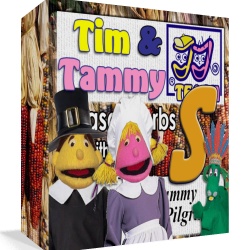Tanto o phrasal verb “Stick up for” quanto o phrasal verb “Stand up for” são usados para se dizer defender (alguém ou alguma coisa ou idéia que está sendo criticada ou atacada). Mas como saber quando usar um ou o outro? Ouça o mini-podcast de hoje para descobrir!
 Todos os Episódios do Mini-Podcast “Inglês Todos os Dias” de 2019 e 2020 CLIQUE AQUI
Todos os Episódios do Mini-Podcast “Inglês Todos os Dias” de 2019 e 2020 CLIQUE AQUI
FRASES NO MINI PODCAST DE HOJE:
Coby: You have to stand up for what you believe, no matter the cost.
Source: https://loja.domineingles.com.br/phrasal-verbs-letra-s
stand up
sit
stand
Someone is standing next to the door.
Stand up for your belief.
Stand up for what you believe.
Stand up for your friends.
stand – stood
He stood up for his friends when they were being criticized.
We all have to stand up for our rights.
You need to stand up for yourself.
Sharona: Benjy, you were right.
Benjy: About what?
Sharona: About standing up for that little boy in school. You did the right thing. So now I’m standing up for somebody who can’t protect himself.
Benjy: You mean, Darwin?
Sharona: Yeah.
Source: https://www.imdb.com/title/tt0650645/?ref_=ttfc_fc_tt
stand up for
stick up for
Stand up, stand up for Jesus,
Ye soldiers of the cross;
Lift high his royal banner,
It must not suffer loss.
Source: https://youtu.be/SsFhGkh71sY
I stood up for my friend(s) when _______________________ .
I always stand up for my students.

Clique AQUI
—–===(*)===—–
Write a sentence with “stand up for” in the comments section below. Example:
I always stand up for my friend(s) when _____________________. (or)
I stood up for my friend(s) when ________________________ .


I always stand up for the classical liberal ideas! I stick up for my teacher little Timmy hahaha! Hello brother Tim!! I miss you and the classes.
Hey, Eduardo! Good to see you here, my friend! 😀
When I was a child and I fought with another kid, my mother always stood up for me.
You have a good mother!
Tim please, stand up, come here and tell us. Did you stand up for your cousin in the party last night?
By the way Tim, who can I say (furar o olho, no sentido de aproveitar de alguém) in English of course. tks a lot have a nice weekend
Hi, Denilson. I don’t really know the expression “furar o olho” in portuguese. Could you give me an example in a sentence?
For example, I am trying another job, a friend of mine knew through me, he goes there in a illicit way and gets that job.
It’s just an example, I tried to clarify it.
Oh, I see. Thank you. I didn’t know that expression. And I’m not sure there is an equivalent in English. I’ll have to think about it.
I would probably just say that someone was disloyal.
It was very useful to learn these phrase verbals. Thank you for standing up for your students.
Thank you, Vania! I’ll always stand up for my students! 🙂
“…
Get up, stand up, stand up for your rights!
Get up, stand up, don’t give up the fight!
…”
Get Up Stand Up
Bob Marley
Cool! That song has all the expressions in one! 🙂
Glad you like!
What about the rest of the hymn chorus? “Lift high his royal banner,
It must not suffer loss” how could we translate to Portuguese? It made me a bit confused.
Literally, it would could be translated like this:
Erga bem alto a Sua bandeira real,
Não deve sofrer perda/ser prejudicado.
…From victory unto victory
His army shall he lead,
Till every foe is vanquished,
And Christ is Lord indeed.
All glory to Jesus. God bless you Tim.
Thank you, Julio. Did you know that hymn before?
I always stand up for my son when he fights with other children, but I need him to learn for himself.
Yes, you’re right. Our kids have to learn to stand up for themselves.
I always stand up for my wife!
You’re a good husband!
Hey Tim, I’ve always stood up for my ideals!
Good for you, Guilherme! Everyone should do that!
I stood up for my friend when he asked me help
You’re a good friend!
I stick up for my friends, take bad about them.
🙂 b
Hi Tim
Thank you so much for sharing theses tips.
For now my question is: In this sentence ” Sharona: About standing up for that little boy in school. You did the right thing. So now I’m standing up for somebody who can’t protect himself.”
I didn’t understand the pronoun ” himself” i think it could be better “itself”
Can you explain to me?
Hi, Augusto. Actually, we often use personal pronouns for animals, too, especially when they are pets.